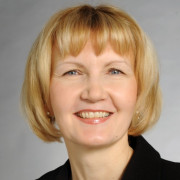Many of today’s elderly people are of the generation who didn’t have to use new technologies in their work or when they studied – the leap to the digital age took place only after their retirement. A global research project is now studying how to better involve the elderly in today’s digitised society.
To be an active participant in today’s society, one needs to be able to operate in various online environments.
“Yet, we still have a great number of people who feel left out of the scope of digital services. Our research project focuses on elderly people’s right to learn new things. In our context, this refers to digital skills. Unfortunately, this continues to be ignored,” says Professor of Special Education Eija Kärnä.
New technologies have great potential in enriching the everyday life of elderly people and to enhance their well-being. Many, however, experience digitalisation as a challenge that is met with mixed feelings.
“We are seeking solutions to overcome some of the challenges associated with digital services and devices. Besides Finland, our research group has researchers from Austria, Italy, Germany and Japan.”
The project’s findings will be used to give policy recommendations to the EU, and another goal is to influence political decision-making on more regional levels.
“Finland is a pioneer on this front, as we are currently piloting a nationwide model to provide support for the elderly and other specific groups in the use of digital devices and services.”
In Finland, training in digital skills is provided, e.g., by community colleges and third sector actors, such as different organisations. Peer support is also available in a multitude of different forms, and this has been identified as a particularly good mode of training.
The data used by the ACCESS project comprises a survey sent to digital skills teachers, peer tutees and elderly people who are learning digital skills, as well as teacher and learner interviews. In addition, the project’s researchers observed settings where digital skills are being taught all across Finland.
Yet, we still have a great number of people who feel left out of the scope of digital services.
Eija Kärnä
Professor of Special Education
Positive and negative feelings
In addition to Eija Kärnä, the ACCESS project involves Postdoctoral Researcher Kristiina Korjonen-Kuusipuro and Postdoctoral Researcher Kaisa Pihlainen at the University of Eastern Finland. Korjonen-Kuusipuro’s focus in the project is on affects and emotions related to digitalisation and digital skills training.
“For some reason, many believe that the elderly can’t learn new things. When this claim gets debunked during a course, the feelings of joy are tangible. We all know how learning a new skill makes us feel good and increases our self-confidence.”
But there were other kinds of feelings, too.
“The study found that people have lots of negative feelings towards digitalisation but were afraid to talk about them. Some felt that they couldn’t show feelings of anxiety or insecurity to people in their course community.”
According to Korjonen-Kuusipuro, these feelings of anxiety speak, for their part, to the fact that the definition of an active citizen has changed a lot over the past few years.
“Societal participation is largely looked at through digital lenses. This is why the elderly have a strong feeling of getting left behind, should they fall of the digital wagon. Yet at the same time, these people are actively involved in different clubs and they do voluntary work, just to name a few examples. This is why I’d like to point out that societal participation still has many different forms.”
Societal participation is largely looked at through digital lenses.
Kristiina Korjonen-Kuusipuro
Postdoctoral Researcher
Ideal of independence
Finland has a strong culture that idealises coping on one’s own. When older people in Italy get into trouble, they call their relatives for help. In Finland, however, it is seen as a matter of honour to solve the problem without bothering anyone.
“Many people are also afraid of technology itself. They may come to a digital skills course with a new device still in the box. They’ve been afraid to open the box – and to ask anyone for help.”
People also got easily frustrated with technology when things didn’t go as planned, although later on they tried to dismiss feelings of frustration with humour. According to Korjonen-Kuusipuro, we should be more empathetic to different feelings.
“Negative feelings serve a purpose, as they reveal where our frustrations lie. As the development of digitalisation becomes increasingly rapid in our society, we need to be able alleviate negative feelings and to highlight different forms of agency and participation. People should feel that their feelings matter and that they are being heard.”
These learning communities provide elderly people with a channel that supports their independence and reinforces a positive sense of belonging in a group of peers.
Kaisa Pihlainen
Post Doctoral Researcher
People who interact with others are healthier
According to Kaisa Pihlainen, digital skills courses definitely serve a purpose and yield various benefits. Elderly people participating in digital skills training felt that their digital skills improved and that their attitudes towards technology became more positive.
“In addition, their well-being was also strengthened by the very training setting. These learning communities provide elderly people with a channel that supports their independence and reinforces a positive sense of belonging in a group of peers.”
Digital devices also make it possible to stay in touch with relatives and friends who live elsewhere.
“Research has shown that the more an elderly person sends messages or talks over the phone with friends and relatives, the better his or her well-being. Those who actively stay in touch with others feel healthier, and they also have less chronic illnesses and depression.”
New technologies also make it easy to find information: this facilitates access to one’s own health data and information on health promotion.
“And problem-solving situations are also an important form of brain exercise for the elderly.”




